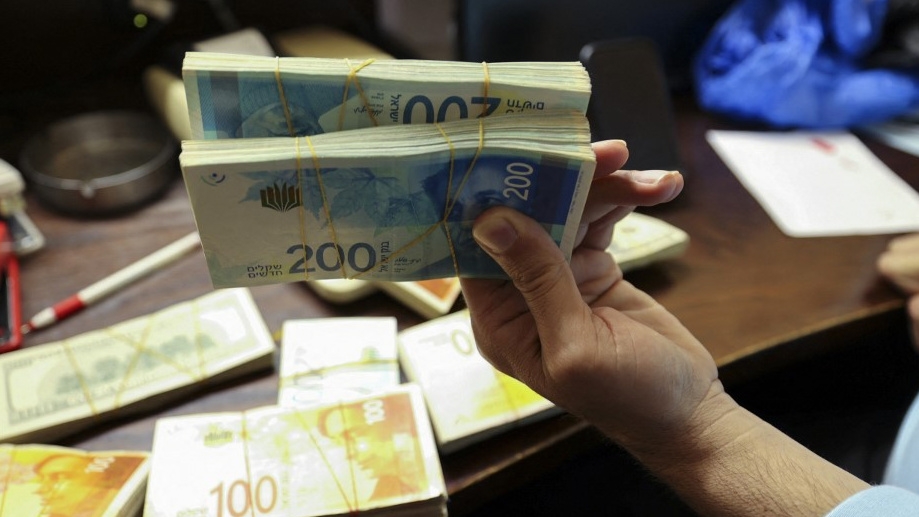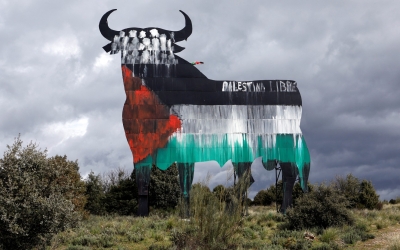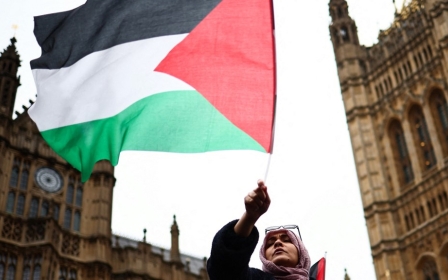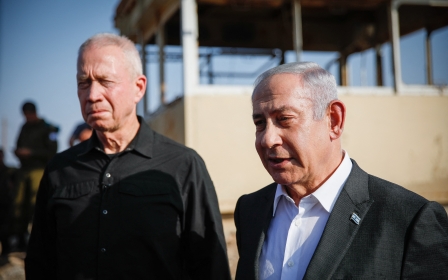Can Palestine achieve financial independence?

Last month, Spain, Ireland and Norway formally recognised Palestine as a state, joining more than 140 UN member countries that already recognise it.
This recognition has been hailed as a positive step forward, particularly as the International Criminal Court (ICC) considers issuing arrest warrants against Israeli leaders for their involvement in alleged war crimes in Palestine.
The move by the three countries was welcomed by Palestinian officials, as other nations were urged to follow suit. Legally, achieving statehood would enable Palestine to join numerous international agreements and treaties related to human rights and trade.
Although the recent recognitions are merely another step towards full UN recognition, Israel has condemned them and discussed escalatory measures against the countries involved, accusing them of supporting terrorism.
New MEE newsletter: Jerusalem Dispatch
Sign up to get the latest insights and analysis on Israel-Palestine, alongside Turkey Unpacked and other MEE newsletters
Israeli officials have also proposed punitive measures for the Palestinians, as the US mulls sanctions on the ICC for attempting to issue arrest warrants against two Israeli leaders.
Israeli Finance Minister Bezalel Smotrich demanded that Prime Minister Benjamin Netanyahu cut off financial support to the Palestinian Authority (PA) and build more settlements in the occupied West Bank. He also called for the cancellation of all VIP permits held by senior PA officials, which facilitate their travel and trade relations.
While the recognitions affirm Palestinian legal and diplomatic rights to statehood, Israel’s potential financial sanctions against the PA could have a catastrophic impact on its survival prospects and on Palestinian livelihoods, as western officials have warned.
Already, restrictions imposed by Israel on the entry of 200,000 Palestinian workers into its territory after the events of 7 October have limited their incomes.
The nuclear option
Israel has already attempted to sever Palestinian banks in Jerusalem from their network by disrupting their internet connectivity. The issue was swiftly addressed, and connectivity was restored within a few hours.
This incident underscores not only the severity of the threat of financial warfare against Palestinians but also the urgent need for Palestinians to pursue financial independence from Israel.
Smotrich’s “nuclear option” to not renew a vital waiver would remove the protection Israeli banks have from legal prosecution for maintaining ties with Palestinian banks. This waiver facilitates payments for Palestinian services and imports, including electricity, water and food.
Set to expire on 1 July and renewable annually, the waiver allows Israeli banks to process international payments on behalf of Palestinian banks. Such a move by Israel could destabilise local Palestinian banks, as customers may rush to withdraw their money for fear of seizure by Israel.
Follow Middle East Eye's live coverage of the Israel-Palestine war
It would also enable Israelis to seek compensation from Palestinian reserves held in Israel, potentially leading to asset seizures. US Treasury Secretary Janet Yellen has warned Israel against cutting its banks’ ties to Palestinian banks to avoid severely damaging consequences.
Smotrich just allowed $35m of the PA funds held in Israeli banks to be seized and given to 28 Israeli families "victims of terrorism".
The decision ends a critical previous waiver the government used to grant the PA to prevent demands for financial compensation as a result of the conflict. Israel’s policy change puts the PA survival at risk and the Palestinians at an effective financial war, opening the gates for more assets seizures in the near future.
Palestine does not have its own currency and relies on Israel’s shekel. Consequently, the Palestine Monetary Authority, which acts as the de facto central bank, depends on the Bank of Israel for access to reserves and financial services. Without the waiver, Israeli and foreign companies with business ties to the PA would be unable to deposit to or receive payments from Palestinian banks, putting them at risk of collapse.
It is crucial for the Palestinians to consider moving their reserves abroad, even temporarily, to ensure the security of their funds
To strategically overcome such restrictions, Palestinians should seek to bank directly with the rest of the world. Israel resists this, fearing negative impacts such as a shrinking monetary base for the shekel, which would fuel devaluation and add pressure to its already strained economy.
For financial independence, Palestine should consider several options.
Palestine could temporarily offshore its banking services to circumvent the physical control of Israeli banks over its reserves, and to independently connect its payment systems to global payment networks. After World War Two, many countries held their reserves offshore, a practice that continues in some places today.
While motives might differ, it is crucial for the Palestinians to consider moving their reserves abroad, even temporarily, to ensure the security of their funds and facilitate transactions with the world, given the persistent punitive financial practices of the occupation.
Financial innovations
The EU or Arab countries, such as the UAE or Saudi Arabia, could enter into an interim agreement with the PA to manage these arrangements until the threat of confiscation and prosecution by Israel diminishes. For instance, Palestine could negotiate with the European Central Bank to provide custodian services for Palestinian reserves.
It could also seek licenses for Palestinian banks to offer offshore banking services from the EU, using its payment systems. This would help to prevent Israel from exerting full control over Palestinian finances, thereby improving the Palestinian negotiating position in any future peace talks with Israel. It would also give the EU leverage to influence Israel to recognise Palestinian monetary rights.
Alternatively, Palestine could sign an agreement with Arab countries to use their payment networks instead of Israel’s. Saudi Arabia has already requested that Israel recognise a Palestinian currency as a goodwill gesture towards peace, and Riyadh could leverage its international influence to protect the independence and integrity of such a currency.
This would enable Palestine to enjoy free capital movement internationally, and to benefit from financial innovations pursued by central banks and entrepreneurs in these countries, such as the use of central bank digital currencies and cryptocurrencies.
But these financial systems could face US sanctions, hindering their effectiveness, and they could potentially be weaponised against Palestinians without strong political support. Therefore, Palestine might also consider partnering with Brics countries, which are less exposed to the threat of US sanctions and might use Palestine as a testing ground for systems like Brics Pay, aimed at offering options uninfluenced by the US.
As Israel continues to defy international law with regards to Palestinian rights, more countries are likely to impose sanctions and trade restrictions on it. Trade sanctions regimes were initiated by Turkey and Iran this month, and China and Spain have introduced some unofficial trade restrictions.
Such measures could expand to include financial sanctions on Israel, which could be used as leverage to pressure it to respect Palestine’s financial independence and its right to access global financial networks for securing food and essential supplies. Arab countries could also use their influence in the international financial system to strengthen Palestinian monetary ties, either through negotiations or more proactive measures.
The views expressed in this article belong to the author and do not necessarily reflect the editorial policy of Middle East Eye.
Middle East Eye delivers independent and unrivalled coverage and analysis of the Middle East, North Africa and beyond. To learn more about republishing this content and the associated fees, please fill out this form. More about MEE can be found here.






